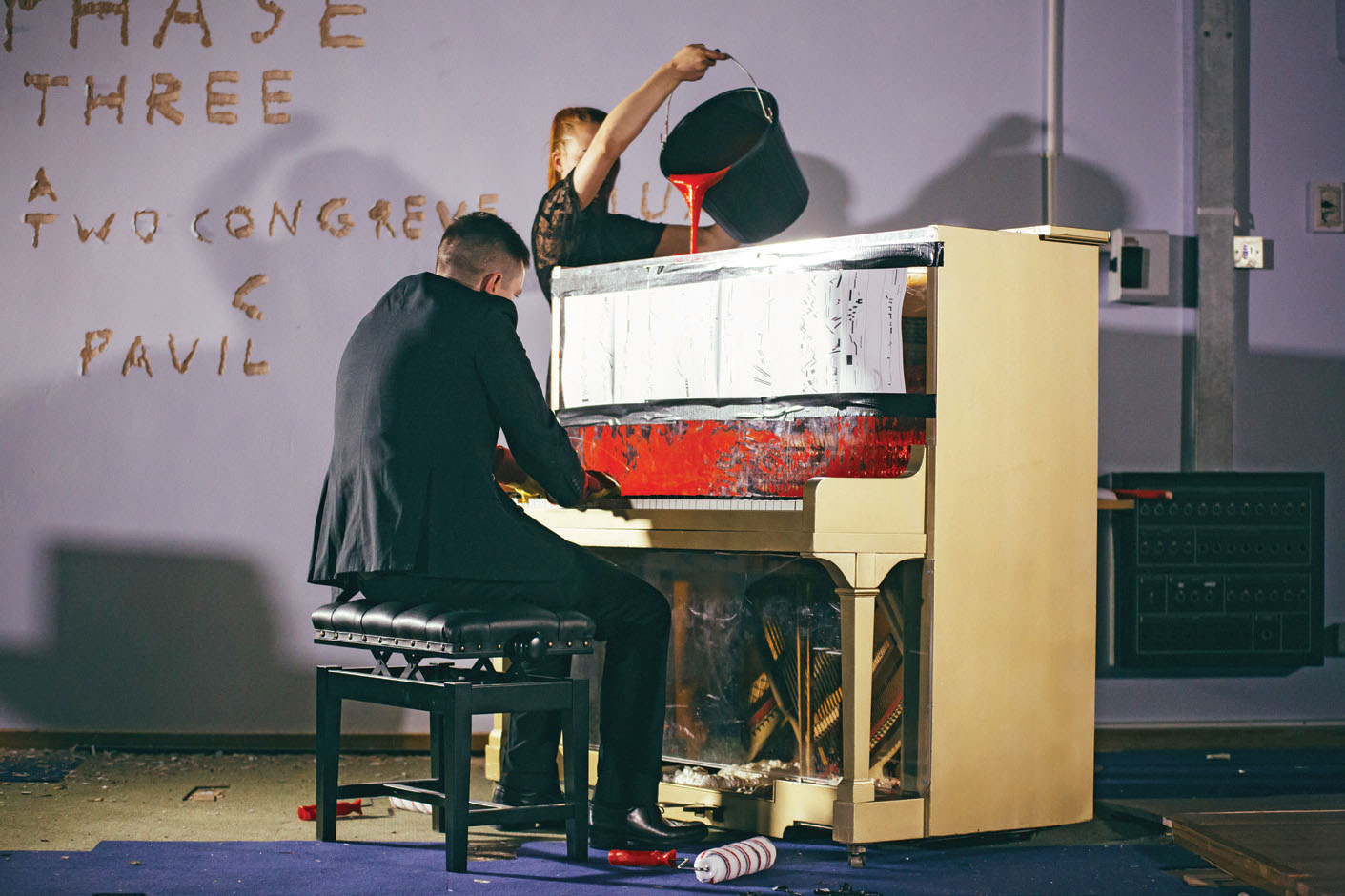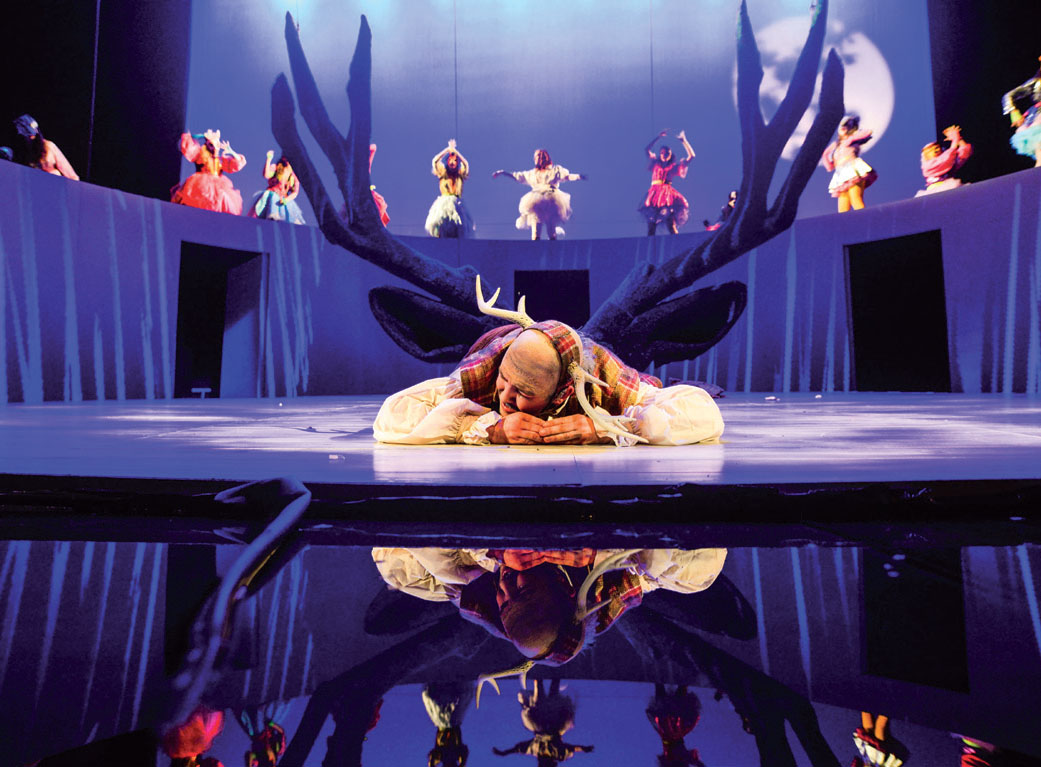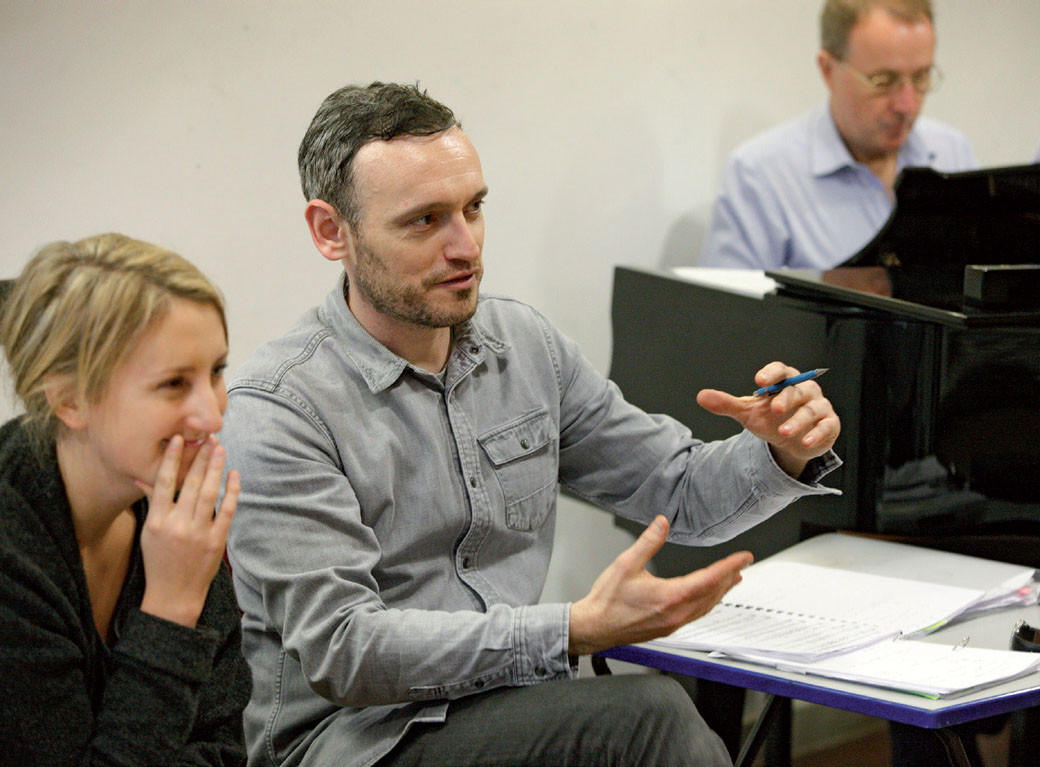
Royal Northern College of Music
Located in the heart of Manchester, the Royal Northern College of Music has just launched the unique European Chamber Music Master (known as an ECMAster) course, which gives established ensembles the opportunity to study with renowned professors within different European institutions.
According to the website, ensembles spend the first and fourth semesters studying with world-class teachers at the RNCM. Players focus on the development of their artistic and technical skills, on their principal instrument, and on enriching their ability to ‘convey musical expression in a chamber group’.
All students then spend the second and third semesters at two of six partner institutions: Fondazione Scuola di Musica di Fiesole Onlus, Italy; Norges musikkhøgskole, Norway; Universität für Musik und darstellende Kunst, Austria; Conservatoire national supérieur de musique et de danse de Paris, France; Koninklijk Conservatorium, Netherlands; and Lietuvos muzikos ir teatro akademija, Lithuania. David Horne, head of the graduate school, says: ‘Students benefit from the different cultural backgrounds and heritages associated with studying in different countries.’
The six partner institutions are also involved with the European Chamber Music Academy. Many of its professors visit other institutions annually to participate in chamber music festivals and to offer group coaching and public masterclasses. According to Horne, the ECMAster was seen as ‘a natural progression of this relationship and a means of further promoting its aims through an established degree programme’.
He adds: ‘There is really nothing like this programme elsewhere. It is very much like a finishing school for ensembles, helping some of Europe's top young chamber musicians make the final transition into the music profession.’
Prospective ensembles should email ecmaster@rncm.ac.uk for information on how to apply.
rncm.ac.uk/ecmaster
Guildhall School of Music & Drama
Guildhall School of Music & Drama has expanded its programme of short courses with nine new ones. These include: Music Production in Logic Pro X for beginners and advanced level pupils; a weekend chamber music course for flautists, cellists and pianists; and Music Production for girls aged 14–18. These courses will run in addition to an already abundant programme of both short and long accredited courses.
Prospective students can find the full programme of short courses online.
www.gsmd.ac.uk/youth_adult_learning/short_courses_summer_schools
Royal Birmingham Conservatoire
 © Birmingham Conservatoire - Experimental performance is an option at the Royal Birmingham Conservatoire
© Birmingham Conservatoire - Experimental performance is an option at the Royal Birmingham Conservatoire
New on the programme at Royal Birmingham Conservatoire (RBC) is the MMus in Experimental Performance. It is a postgraduate degree designed for undergraduates who feel the creative need to go beyond performing other peoples’ work.
Michael Wolters is the associate professor in Composition at Birmingham City University, of which RBC is a part, and he leads the course with Andy Ingamells and Paul Norman. According to them, this MMus offers better support than other postgraduate courses for students wishing to explore more creatively.
‘The defining feature of this course is that it isn't discipline-specific,’ says Wolters. ‘It's for artists trained in any discipline who want to create new performance-based work. Working in an interdisciplinary way means that you don't have to settle for one particular artistic genre and can instead find the best way of expressing an artistic idea, by any means necessary.’
The course structure begins with students’ ideas and what follows is a more fluid transition between idea and realisation. ‘A team of mentors will accompany every student's project – they will watch, listen, feed back, challenge and critique,’ says Wolters. Not only that, but this course is unique in that each student can design their programme according to what they need. They can choose among movement classes, instrumental lessons, and vocal coaching as well as professional development modules and academic options in preparation for doctoral study.
This course, as well as others at BCU, is held in the state-of-the-art £57m music building, which opened in September 2017. The central workspace for this degree is The Lab, a black box theatre to which Experimental Performance students have priority access.
Prospective applicants should normally hold an honours degree. To be invited to audition they will need to present a portfolio that demonstrates the aspects of their artistic practice that they find important.
Leeds College of Music
New this year at the Leeds College of Music (LCM) is the BA (Hons) Musical Theatre, a year-long undergraduate degree validated by the University of Hull and designed to prepare students for a career in musical theatre.
Students of this course benefit from a collaborative creative environment in preparation for the fast-paced world of musical theatre. The course combines studio practice and training with leading practitioners from Leeds Playhouse and conservatoire staff. Groups are small, to ensure students have optimum contact time. The professional training involves tuition in singing, acting, movement, and voice. Additionally a number of dance styles such as ballet, tap, and jazz are offered. The degree culminates in a third-year industry showcase to which agents and industry insiders are invited.
Prospective applicants require an A Level or BTEC extended diploma in a music, dance, or acting-related subject. If their application is successful they will be invited to audition to a panel including Adam Stadius, the programme leader; Victoria Gimby, a writer, director and dramaturge; and choreographer Simon Hardwick.
LCM will soon introduce further degrees – BA (Hons) Acting and BA (Hons) Actor-Musician – as part of the conservatoire's new performing arts department. They will be located in the brand-new, state-of-the-art performance facilities at the New Quarry Hill Site. On top of that, LCM has also recently diversified its music provision further by launching a foundation degree in Electronic Music Production in September 2018.
Royal Welsh College of Music and Drama
 © Kirsten McTernan
© Kirsten McTernan
A dress rehearsal of the RWCMD production of Falstaff
New in September 2018, and soon to complete its first cohort, is the MA in Opera Directing at the Royal Welsh College of Music and Drama. It is a fully mentored programme tailored to the individual skills, experience, and needs of each student.
‘It was created in response to discussions with numerous opera companies – in particular the Welsh National Opera, the Royal Opera House and the English National Opera – about their requirements for young directors and staff directors,’ says Martin Constantine, the Hodge international chair in directing at RWCMD.
Students benefit from a highly sought-after, fully-negotiated industry placement in a professional UK opera company, and also have the opportunity to observe professional practice at both RWCMD and at the Welsh National Opera. According to Zoe Smith, the head of postgraduate programmes, it is distinct in that it is designed to exist solely as a 12-month intensive master's and fully embeds interaction with the opera profession throughout. As a fully assessed part of the course, it culminates in an industry placement at one of the UK opera companies.
‘It runs alongside the Opera School programmes and complements the advanced opera activities,’ she says, ‘as well as involving undergraduate and postgraduate vocal studies students. It also offers the first genuine opportunity for cross-departmental collaboration in the form of the Design for Performance Opera Box project. Our MA Opera Directors are assigned MA Design students to work collectively to create a vision and design for particular operas.’
As such, this course offers students the opportunity to receive hands-on training and collaboration from the beginning, providing them with the necessary skills for a career following graduation. According to Constantine, it is the only course in the UK offering intensive and comprehensive training to young opera directors. ‘It allows them to have access to a range of classes necessary to provide a wide base of knowledge.’
Students will attend one-to-one directing workshops with young and professional singers; devise a scenes production; collaborate on conceptual opera designs with designers; write and direct a new opera with young composers; devise a final term oneact opera; and assist on RWCMD productions.
Prospective applicants should usually have a n upper second class degree in Music (or equivalent) and entry is by interview. As a one-year programme, this course costs £10,481. The college regularly advertises open days on its website.
rwcmd.ac.uk/courses/ma_opera_directing.aspx

Martin Constantine








